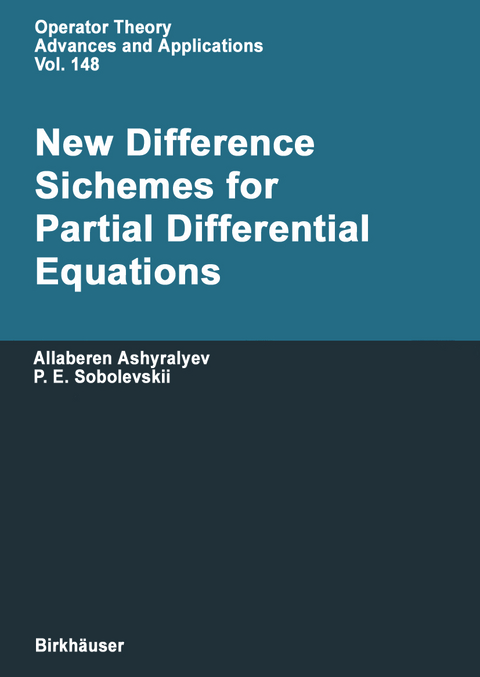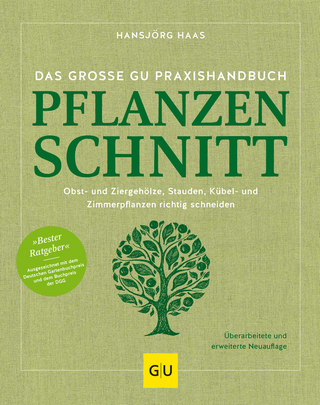
New Difference Schemes for Partial Differential Equations
Springer Basel (Verlag)
978-3-0348-9622-1 (ISBN)
The present monograph is devoted to the construction and investigation of the new high order of accuracy difference schemes of approximating the solutions of regular and singular perturbation boundary value problems for partial differential equations. The construction is based on the exact difference scheme and Taylor's decomposition on the two or three points. This approach permitted essentially to extend to a class of problems where the theory of difference methods is applicable. Namely, now it is possible to investigate the differential equations with variable coefficients and regular and singular perturbation boundary value problems. The investigation is based on new coercivity inequalities.
The book will be of value to professional mathematicians, as well as advanced students in the fields of numerical analysis, functional analysis, and ordinary and partial differential equations.
The present monograph is devoted to the construction and investigation of new difference schemes for approximating the solutions of regular and singular perturbation boundary-value problems for partial differential equations. This approach permits extending essentially a class of problems where the theory of difference methods is applicable. Namely, it is now possible to investigate differential equations with variable coefficients and regular and singular perturbation boundary-value problems. The investigation is based on new coercivity inequalities. The book will be of value for professional mathematicians as well as for advanced students in the fields of numerical analysis, functional analysis, and differential equations.
1 Linear Difference Equations.- 1.1 Difference Equations of the First Order.- 1.2 Difference Equations of the Second Order.- 1.3 Difference Equations with Constant Coefficients.- 2 Difference Schemes for First-Order Differential Equations.- 2.1 Single-Step Exact Difference Scheme and Its Applications.- 2.2 Taylor's Decomposition on Two Points and Its Applications.- 3 Difference Schemes for Second-Order Differential Equations.- 3.1 Two-Step Exact Difference Scheme and Its Applications.- 3.2 Taylor's Decomposition on Three Points and Its Applications.- 4 Partial Differential Equations of Parabolic Type.- 4.1 A Cauchy Problem. Well-posedness.- 4.2 Difference Schemes Generated by an Exact Difference Scheme.- 4.3 Single-Step Difference Schemes Generated by Taylor's Decomposition.- 5 Partial Differential Equations of Elliptic Type.- 5.1 A Boundary-Value Problem. Well-posedness.- 5.2 Difference Schemes Generated by an Exact Difference Scheme.- 5.3 Two-Step Difference Schemes Generated by Taylor's Decomposition.- 6 Partial Differential Equations of Hyperbolic Type.- 6.1 A Cauchy Problem.- 6.2 Difference Schemes Generated by an Exact Difference Scheme.- 6.3 Two-Step Difference Schemes Generated by Taylor's Decomposition.- 7 Uniform Difference Schemes for Perturbation Problems.- 7.1 A Cauchy Problem for Parabolic Equations.- 7.2 A Boundary-Value Problem for Elliptic Equations.- 7.3 A Cauchy Problem for Hyperbolic Equations.- 8 Appendix: Delay Parabolic Differential Equations.- 8.1 The Initial-Value Differential Problem.- 8.2 The Difference Schemes.- Comments on the Literature.
| Erscheint lt. Verlag | 14.10.2012 |
|---|---|
| Reihe/Serie | Operator Theory: Advances and Applications |
| Zusatzinfo | IX, 446 p. |
| Verlagsort | Basel |
| Sprache | englisch |
| Maße | 155 x 235 mm |
| Gewicht | 700 g |
| Themenwelt | Sachbuch/Ratgeber ► Natur / Technik ► Garten |
| Mathematik / Informatik ► Mathematik ► Algebra | |
| Mathematik / Informatik ► Mathematik ► Analysis | |
| Schlagworte | Algebra • Boundary value problem • Functional Analysis • hyperbolic equation • Numerical analysis • Numerische Analysis • Operatortheorie • partial differential equation • Partial differential equations • Partielle Differentialgleichungen |
| ISBN-10 | 3-0348-9622-0 / 3034896220 |
| ISBN-13 | 978-3-0348-9622-1 / 9783034896221 |
| Zustand | Neuware |
| Haben Sie eine Frage zum Produkt? |
aus dem Bereich


